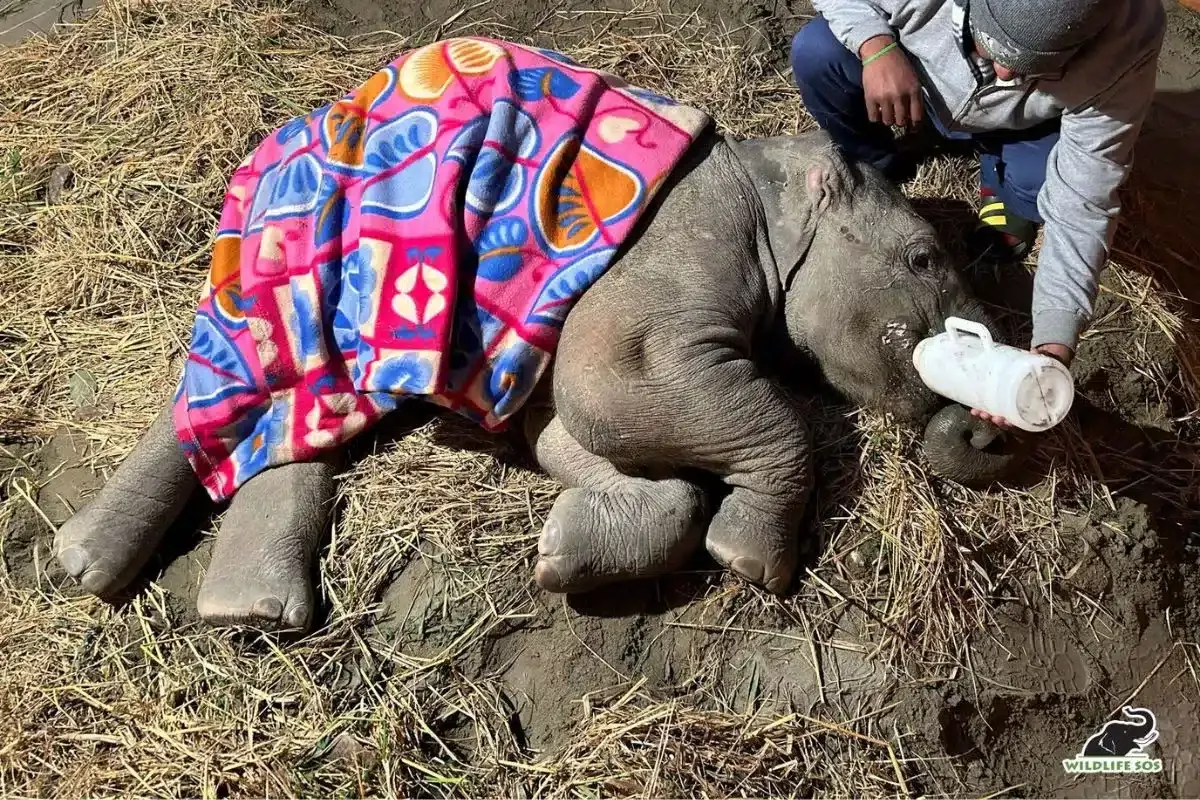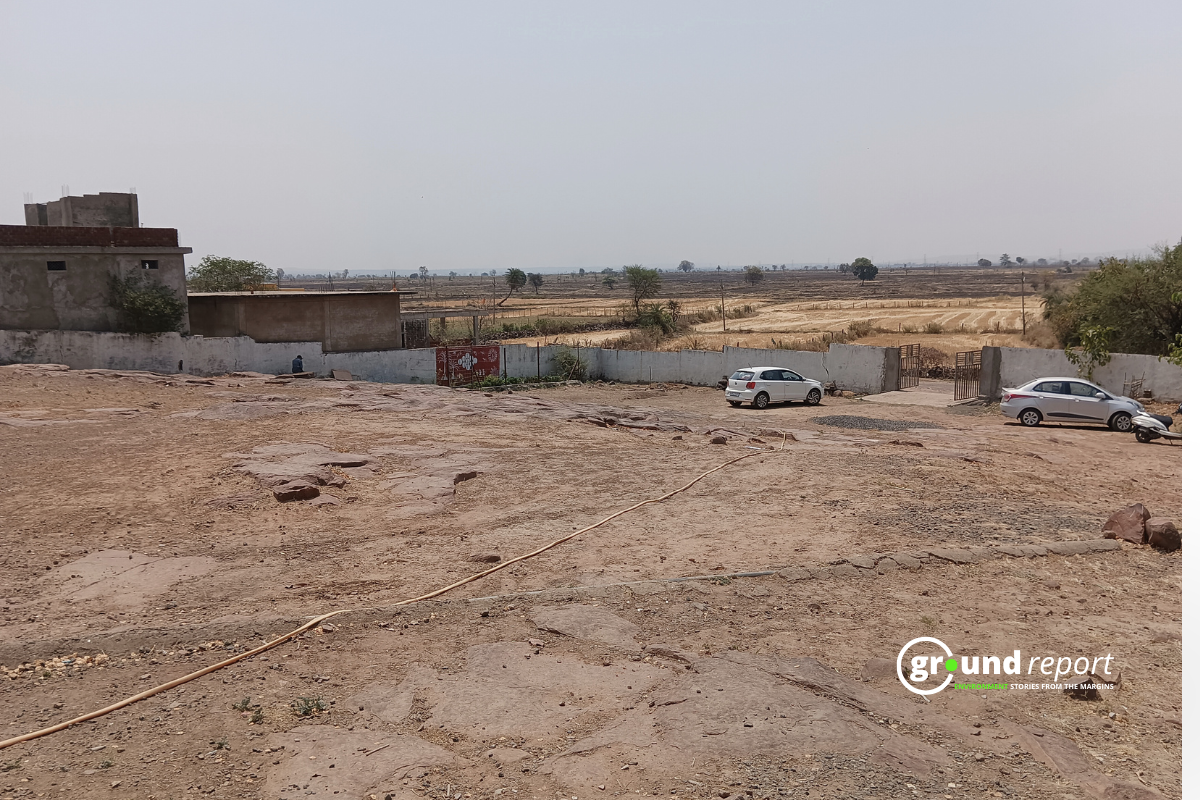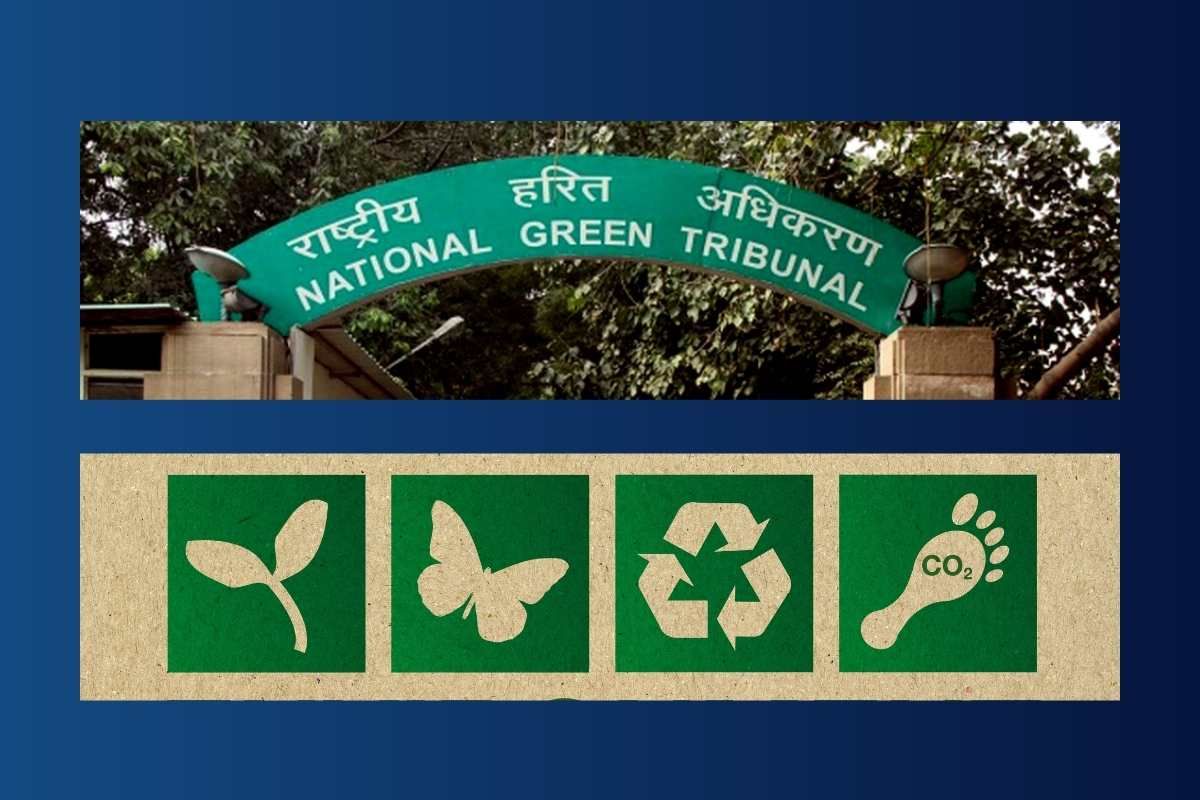A baby elephant had a narrow escape after a train hit and killed her mother near the Corbett National Park in Uttarakhand on Tuesday. The calf, named Bani, was thrown off the tracks and landed in a field below the elevated railway line. She suffered injuries on her spine and hip joints but is recovering at India’s first elephant hospital in Mathura.
The accident occurred when a mother elephant and her calf were crossing the tracks in the mountain state. The train, which was reportedly speeding, struck them head-on, killing the mother instantly. Her body was left on the tracks, bleeding profusely, while the baby was flung into the air.
Dr. Ilayaraja S, Deputy Director- Veterinary Services, Wildlife SOS, said, “Bani has an infected wound in her groin area, which we are treating. She can move her front legs well. We initially suspected a spinal injury, but she is showing signs of improvement in her tail, digestion, and other body functions.”
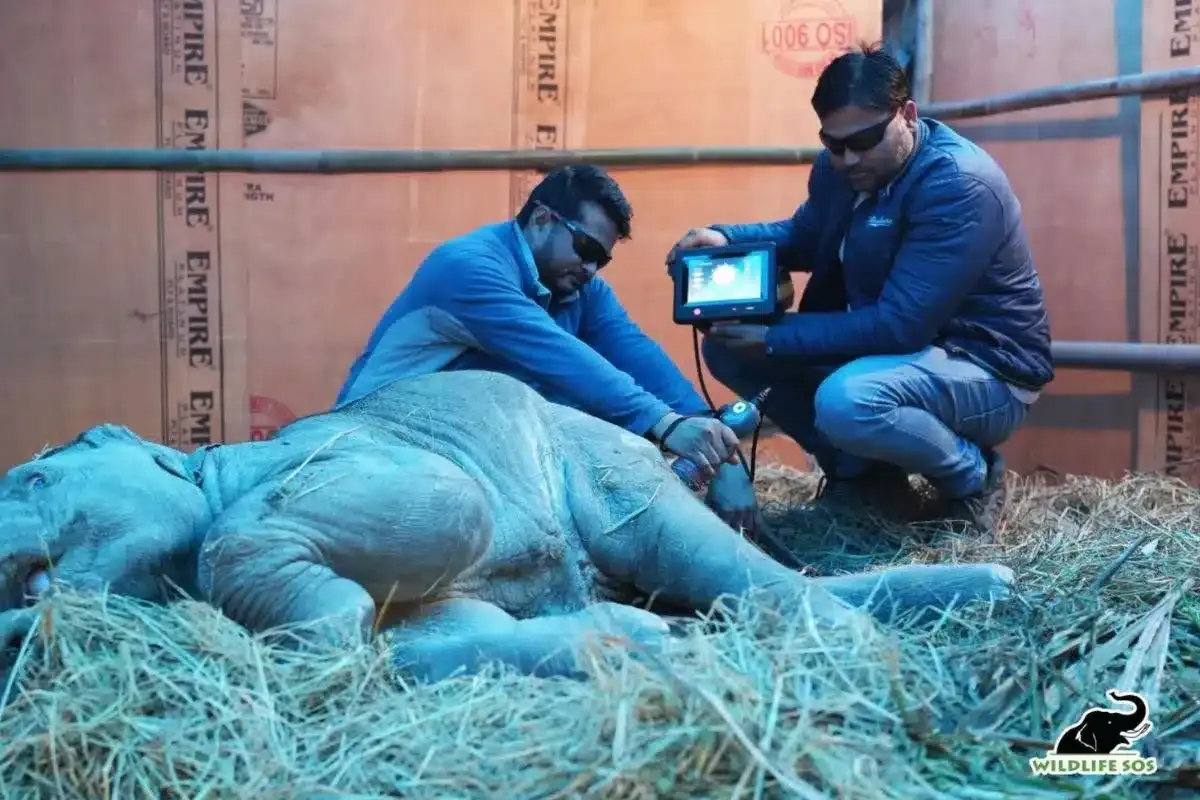
The forest officials reached the spot and found the orphaned calf lying in the field. They contacted Wildlife SOS, a non-governmental organisation that works for the rescue and rehabilitation of wildlife in distress. The team from Wildlife SOS provided first aid to the calf and transported her to the Elephant Hospital in Mathura, which is run by the organisation.
Bani was tragically orphaned when she and her mother were struck by a speeding train in a forested area of northern India. While her mother did not survive the accident, Bani was left severely injured. The local Forest Department initially cared for Bani and later sought assistance from Wildlife SOS.
Kartick Satyanarayan, Co-founder and CEO, Wildlife SOS, said, “We are thankful to the Chief Wildlife Wardens of Uttarakhand and Uttar Pradesh for permitting us to transfer Bani to the Elephant Hospital, where she can get the best possible care. We hope she will recover soon and overcome the trauma of losing her mother.”
Despite her critical condition, Bani has shown promising signs of recovery. She has regained some movement in her legs and tail, indicating neurological healing. She is eating well and able to urinate and defecate without significant difficulty. However, her condition remains critical.
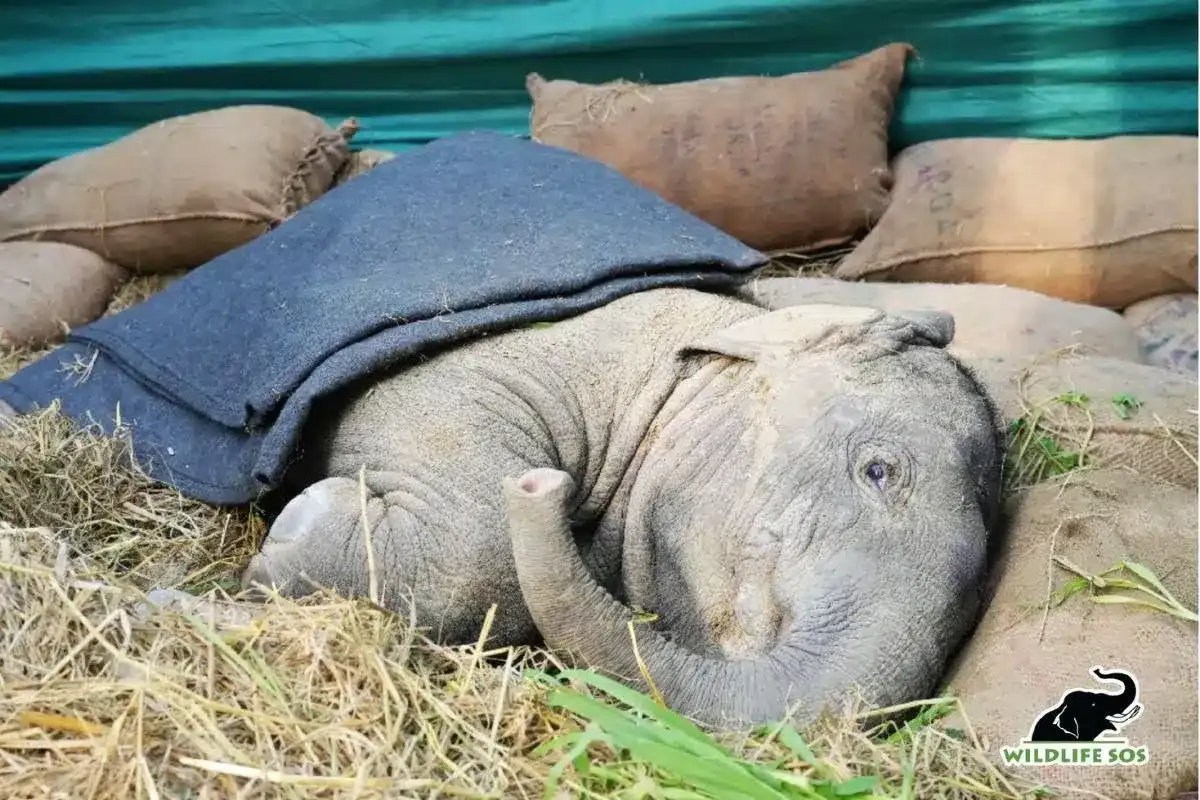
Bani’s immobility over the past few weeks has put additional stress on her circulation and heart. She also has infected wounds in her groin area, which are currently being treated. Furthermore, she suffers from ankylosis in her left hip joint, causing stiffness and limited movement. Bloating and colic pose additional life-threatening risks.
Geeta Seshamani, Co-founder and Secretary, Wildlife SOS, said, “This is a tragic and preventable incident that highlights the growing conflict and intolerance towards wildlife. Train collisions kill thousands of animals every year. We urge the railways to reduce the speed of trains in wildlife corridors and adopt technologies that can detect and alert the presence of elephants and other animals on the tracks.”
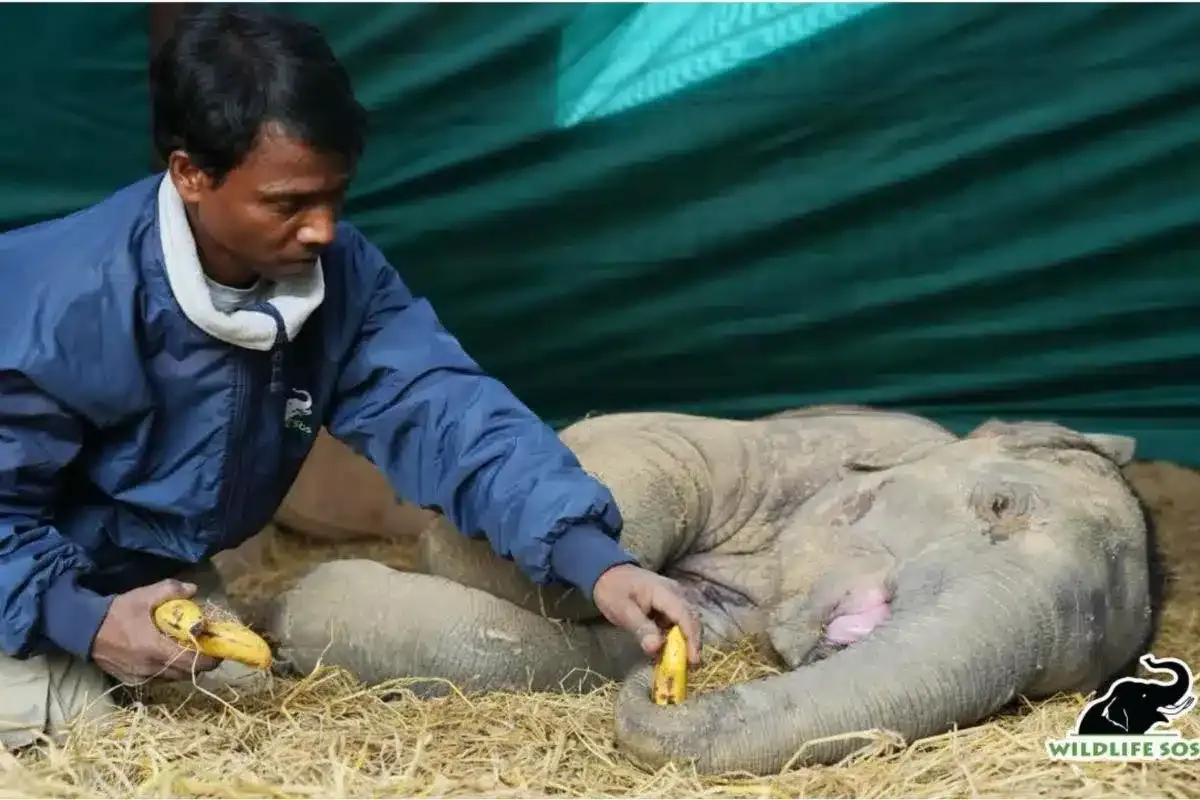
Baiju Raj M.V, Director Conservation Projects at Wildlife SOS, said, “Bani is nine months old and needs constant care and attention. We are cleaning and massaging her daily and dressing her wounds to prevent infections. We are also giving her laser therapy and physiotherapy to exercise her joints. According to official records, nearly 200 elephants were killed by trains between 2010 and 2020, averaging 20 elephants per year. We have launched a petition to advocate for mitigation measures to save the elephants from train accidents.”
Veterinarians continue to diagnose and treat Bani’s injuries, facing numerous medical challenges. Despite these obstacles, the team remains hopeful and reassures that Bani is in the best possible care for her recovery.
Wildlife SOS urges the public to implore Indian Railways to reduce speeds in wildlife corridors and implement measures to protect wild elephants. More updates on Bani’s condition will be shared as her situation evolves.
The organization extends its gratitude to the Uttar Pradesh and Uttarakhand Forest Department, and senior veterinarians from Western Circle, Haldwani, Nainital Zoo, Corbett Tiger Reserve, and WWF India for their initial emergency care for Bani.
Keep Reading
Hemorrhagic disease increasing in Asian elephants: Study
World Elephant Day 2023: Discover how they remember for generations
India Has 150 Elephant corridors across four regions: New report
Asian Elephant populations threatened by rapid ecosystem decline
Know about Radha Krishna Temple Elephant Trust in Gujarat’s Jamnagar
Follow Ground Report for Climate Change and Under-Reported issues in India. Connect with us on Facebook, Twitter, Koo App, Instagram, Whatsapp and YouTube. Write us on GReport2018@gmail.com.
